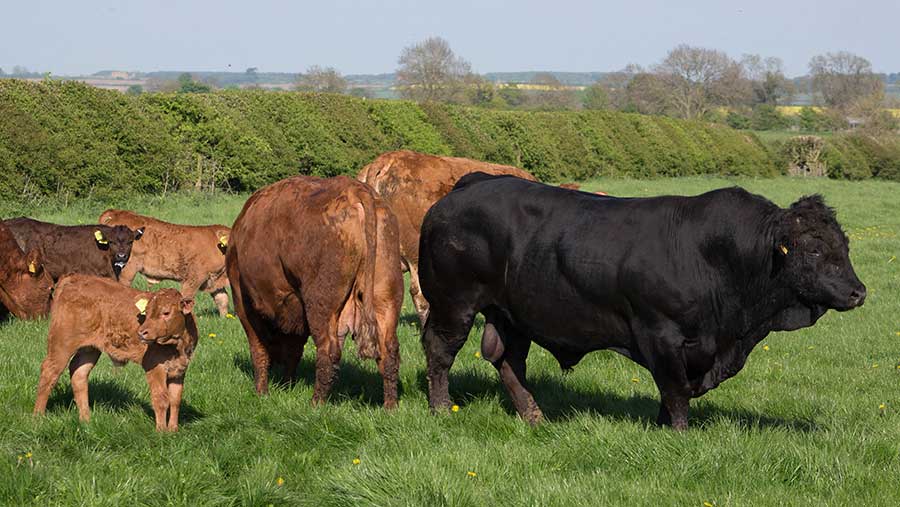Farm groups support recommendation to eat less meat
 © Tim Scrivener
© Tim Scrivener A group of livestock farmers and their organisations have backed proposals to cut UK meat consumption by 30%, as set out in the recent National Food Strategy – as long as it does not include their own “high-welfare” meat.
The group, which includes Soil Association chief executive Helen Browning, Linking Environment and Farming chief executive Caroline Drummond and Nature Friendly Farming Network chairman Martin Lines, has written to Defra secretary George Eustice, endorsing Henry Dimbleby’s recommendations.
See also: National Food Strategy report claims examined
“There are some you would expect us to support,” they suggest. “Mr Dimbleby is forthright about the government’s duty to protect British farming standards and suggests a practical mechanism to do so.
“He is clear about the need to ring-fence the current budget for agriculture and the environment. And he rightly says that government should be explicit about the amount of land that is needed for woodland and nature restoration, and the best places for this.”
‘Eat less meat’
But the letter then addresses Mr Dimbleby’s recommendation to eat less meat. “That might make less comfortable reading for us, but nevertheless deserves our firm backing,” they write.
Who has signed the letter?
Julia Aglionby, executive director, Foundation for Common Land
Helen Browning, chief executive, Soil Association
Caroline Drummond, chief executive, Linking Environment and Farming
Jake Fiennes, director of conservation, Holkham Estate
Peter and Henrietta Greig, Pipers Farm, Devon
William Kendall, organic farmer, Suffolk
Alastair Leake, director of policy, Game and Wildlife Trust
Martin Lines, chairman, Nature Friendly Farming Network
Sue Pritchard, chief executive, Food, Farming and Countryside Commission
John Shropshire, chairman, G’s Group
Craig Livingstone, Lockerley Estate
“The reality is that people in developed countries do need to eat less meat overall, while ensuring that the meat we do eat comes from high-welfare systems that support biodiversity, which the UK is well placed to achieve,” says the letter.
“The switch from industrially produced animal products – often destined for ultra-processed foods and relying on imported proteins that can drive deforestation – to regenerative systems where animals play their time-honoured role in building soil fertility and sustaining nature, must happen swiftly.”
Industry split
But the letter has been criticised by the National Beef Association, with chief executive Neil Shand accusing the signatories of trying to create a split in the domestic supply base.
“As Henry Dimbleby says in his report, intensive beef production systems are actually more carbon friendly than extensive systems,” he said.
“The priority should be to feed as many people as possible with UK beef produced to the highest welfare standards.
“But we need to be careful. I’m all for reducing imports of beef that may be of uncertain welfare standards and not fully traceable.
“But some of our intensive systems in the UK are also highly efficient and environmentally superior.”
Mr Shand also explained that the UK was currently just 70% self-sufficient in beef. Any pressure to cut meat consumption could pave the way for more imports, he warned.
“As Defra secretary George Eustice has said, it’s not for government to tell people what to eat,” he added.
